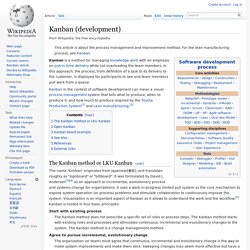

HTTP access control (CORS) - HTTP. A resource makes a cross-origin HTTP request when it requests a resource from a different domain than the one which served itself.

For example, an HTML page served from makes an <img> src request for Many pages on the web today load resources like CSS stylesheets, images and scripts from separate domains. For security reasons, browsers restrict cross-origin HTTP requests initiated from within scripts. For example, XMLHttpRequest follows the same-origin policy. So, a web application using XMLHttpRequest could only make HTTP requests to its own domain. To improve web applications, developers asked browser vendors to allow XMLHttpRequest to make cross-domain requests. The W3C Web Applications Working Group recommends the new Cross-Origin Resource Sharing (CORS) mechanism. This article is for web administrators, server developers and front-end developers. This cross-origin sharing standard is used to enable cross-site HTTP requests for: OverviewEdit Examples of access control scenariosEdit.
BPMN Specification - Business Process Model and Notation. Kanban (development) This article is about the process management and improvement method.

For the lean manufacturing process, see Kanban. Kanban in the context of software development can mean a visual process management system that tells what to produce, when to produce it, and how much to produce inspired by the Toyota Production System[1] and Lean manufacturing.[2] The name 'Kanban' originates from Japanese[看板], and translates roughly as "signboard" or "billboard". It was formulated by David J. Anderson[3][4] as an approach to incremental, evolutionary process and systems change for organizations. Start with existing process The Kanban method does not prescribe a specific set of roles or process steps. Agree to pursue incremental, evolutionary change The organization (or team) must agree that continuous, incremental and evolutionary change is the way to make system improvements and make them stick. Respect the current process, roles, responsibilities and titles Leadership at all levels.
How To Survive a Ground-Up Rewrite Without Losing Your Sanity. How To Survive a Ground-Up Rewrite Without Losing Your Sanity aka: Screw you Joel Spolsky, We're Rewriting It From Scratch!

This is a guest post by Dan Milstein (@danmil), co-founder of Hut 8 Labs. Disclosure: Joel Spolsky is a friend and I'm an investor in his company, Stack Exchange (which powers the awesome Stack Overflow) -Dharmesh So, you know Joel Spolsky's essay Things You Should Never Do, Part I? In which he urgently recommends that, no matter what, please god listen to me, don't rewrite your product from scratch? First off, he's totally right. But sometimes, on certain rare occasions, you're going to be justified in rewriting a major part of your product (you'll notice I've shifted to saying you're merely rewriting a part, instead of the whole product. Hello, My Name is Dan, and I've Done Some Rewrites It took a loooong time. But it generated a ton of value for HubSpot. From all that, some fairly clear lessons emerged. Prepare Yourself For This Project To Never Fucking End. You Cannot Yell at a Board with Stickies on It.
It is now two weeks before your major deadline.

For the last four weeks, you’ve barely slept a wink. You know your team is behind. They know they’re behind. But the deadline is firm. Your team promises you – nay, vows to you it will be done on schedule. Everything is riding on this release. You close your office door and look at the remaining unfinished requirements. Nope. You go to your team and tell them what you’ve found. You yell back. The situation is as predictable as it is unnecessary. What we have here is not necessarily a failure to communicate but instead, a confluence of avoidance behaviors exacerbated by a lack of a visual control. Huh? Okay, it’s kind of convoluted, so let’s bullet it out: Short form: No one had a status board to point to and say Look!
A kanban (see image) is a status board. You see, the issues that slow production are rarely sabotage, subterfuge, or incompetence. A visual control gives the team a gift: a disinterested third party that merely reports reality.